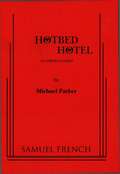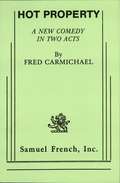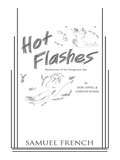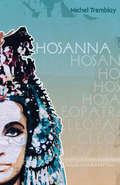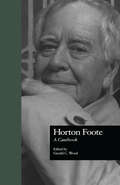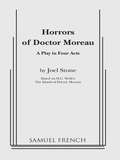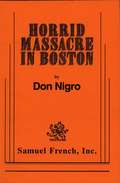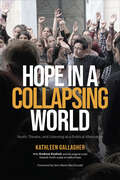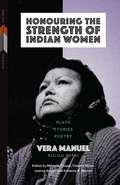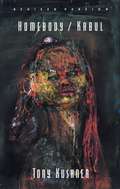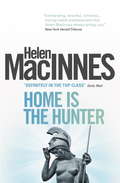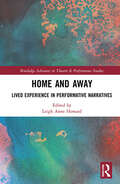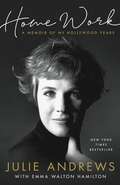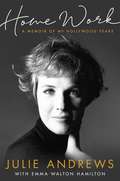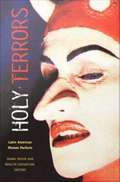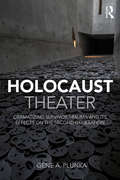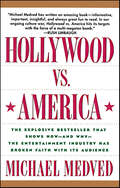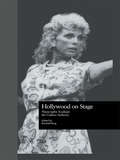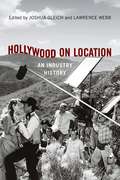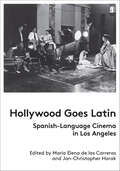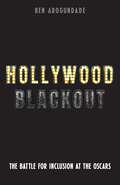- Table View
- List View
Hotbed Hotel
by Michael ParkerComedy / 4m, 5f / Unit Set / Terri and Brian Cody are trying to sell their one star (and often one guest) hotel in the Florida Keys. A prospective buyer is about to arrive from New York. They decide to have the staff masquerade as paying guests to convince the him that the establishment is busy and prosperous. Unfortunately, the staff consists of a bibulous maintenance man and a curvaceous but somewhat vacant young maid. Add the eccentric retired British Army Major who resides at the hotel, a wealthy Arab Sheik (who looks suspiciously like the Major), a nymphomaniac dubbed The Barracuda during her annual stays, the prospective buyer's girlfriend and, unexpectedly, his wife, and you have a laugh a minute merry go round that leaves audiences screaming with delight.
Hot Property
by Fred CarmichaelComedy / 4m, 4f / Interior / Laughter, mistaken identities,, and even a "sting" conspire to make this an irresistible comedy. Jamie's mother was an author and before she died she wrote the sensational and sensuous life history of INEZ which is fast becoming a best seller but crafty Spencer Layton got hold of the manuscript and had it published with him as author. Jamie and his fiance, Kay, are about to give up when Albertine Johnson, a character actress, appears fresh from a fire which canceled a week's engagement of her touring company. She and her fellow thespians assume other identities and act their hearts out to defeat Spencer. Albertine enters as the notorious Inez to persuade Spencer Inez is real and will sue him for slander. Another of the actors comes in as Inez's long lost daughter and another as the publisher of the book. When the real publisher shows up, the sting is getting out of hand but plot twists and the inventiveness of actors makes for a happily hilarious ending.
Hot Flashes
by Dori AppelComedy \ Flexible casting, 2f - 20f \ Unit set \ What previously forbidden subject is now a hot topic for baby boomers and beyond? Hot Flashes is a fast-paced, highly original comedy about menopause which has been delighting audiences throughout the United States. A main stage hit at the 2004 Senior Theatre Festival in Las Vegas, its nine lively scenes also include a finalist in the Eileen Heckart Drama for Seniors competition and a slam poetry winner. Flexible casting possibilities allow from two to twenty actresses to perform nine scenes about the unique challenges and comic adventures of menopause. \ "Firmly on the pulse of local Baby Boomers . . .should appeal to men and women of all ages."- Ashland Daily Tidings, Ashland, Oregon
Hosanna
by Michel Tremblay Bill Glassco John Van BurekIn Michel Tremblay's classic play about identity in crisis, Claude leaves the conformity of small-town Quebec to realize a new life and a new persona among the drag queens and prostitutes of Montreal's seedy "Main" - the boulevard that marks the division of the city's anglophone and francophone neighbourhoods.Claude's illusions about himself are shattered when, painstakingly remade as his idol Elizabeth Taylor inCleopatra, he arrives at a costume party themed on "great women of history" and is mocked for his glamorous aspirations. Written during the social and political tumult of Quebec's Quiet Revolution, Tremblay's political allegory about the authenticity of self resonates ever more so today.
Hosanna
by Michel TremblayThird Edition In Michel Tremblay's classic play about identity in crisis, Claude leaves the conformity of small-town Quebec to realize a new life and a new persona among the drag queens and prostitutes of Montreal's seedy "Main" - the boulevard that marks the division of the city's anglophone and francophone neighbourhoods. Claude's illusions about himself are shattered when, painstakingly remade as his idol Elizabeth Taylor in Cleopatra, he arrives at a costume party themed on "great women of history" and is mocked for his glamorous aspirations. Written during the social and political tumult of Quebec's Quiet Revolution, Tremblay's political allegory about the authenticity of self resonates ever more so today. Cast of 2 men. Translated by John Van Burek & Bill Glassco
Horton Foote: A Casebook (Casebooks on Modern Dramatists #24)
by Gerald C. WoodFirst Published in 1998. Routledge is an imprint of Taylor & Francis, an informa company.
Horrors of Dr. Moreau
by Joel StoneComedy, Melodrama / 4m, 2f, plus an offstage voice / Exterior / Doctor Moreau is a scientist who is creating a race of "Beast people" -- creatures carved and shaped out of living animals, made to resemble and behave like human beings. They populate Moreau's secluded island, worshipping Moreau as their Creator God and obeying his Laws. The appearance of another "real" human being causes confusion, fear and suspicion amongst them, and they soon revert to their original animal traits and instincts! / "Brings the original H. G. Well's story to life more succinctly and literately than Paramount."-- The New York Times
Horrid Massacre in Boston
by Don NigroDark Dramatic Comedy / 4m, 4f / Interior / Jane Lamb, an orphan, finds a home at Mrs. Turley's Bunch of Grapes Inn in Boston during the Revolution. The colorful, eccentric and dangerous regulars she encounters there include a demonic roustabout who is a patriot, a traitor or a bit of both; Ophelia, a mad girl who talks to mice, and the Oyster Man, a street vendor obsessed with the Boston Massacre where he received a wound that has scrambled his brains to an alarming degree. Jane learns a vivid lesson about the dark underside of patriotic mythology in this nightmarish world of murder, secrets, betrayal and lunacy. This savagely funny, robust and haunting play is part of the author's series Pendragon Plays.
Hope in a Collapsing World: Youth, Theatre, and Listening as a Political Alternative
by Kathleen GallagherFor young people, the space of the drama classroom can be a space for deep learning as they struggle across difference to create something together with common purpose. Collaborating across institutions, theatres, and community spaces, the research in Hope in a Collapsing World mobilizes theatre to build its methodology and create new data with young people as they seek the language of performance to communicate their worries, fears, and dreams to a global network of researchers and a wider public. A collaboration between a social scientist and a playwright and using both ethnographic study and playwriting, Hope in a Collapsing World represents a groundbreaking hybrid format of research text and original script – titled Towards Youth: A Play on Radical Hope – for reading, experimentation, and performance.
Honouring the Strength of Indian Women: Plays, Stories, Poetry (First Voices, First Texts #5)
by Vera ManuelThis critical edition delivers a unique and comprehensive collection of the works of Ktunaxa-Secwepemc writer and educator Vera Manuel, daughter of prominent Indigenous leaders Marceline Paul and George Manuel. A vibrant force in the burgeoning Indigenous theatre scene, Vera was at the forefront of residential school writing and did groundbreaking work as a dramatherapist and healer. Long before mainstream Canada understood and discussed the impact and devastating legacy of Canada’s Indian residential schools, Vera Manuel wrote about it as part of her personal and community healing. She became a grassroots leader addressing the need to bring to light the stories of survivors, their journeys of healing, and the therapeutic value of writing and performing arts. A collaboration by four Indigenous writers and scholars steeped in values of Indigenous ethics and editing practices, the volume features Manuel’s most famous play, "Strength of Indian Women"—first performed in 1992 and still one of the most important literary works to deal with the trauma of residential schools—along with an assemblage of plays, written between the late 1980s until Manuel’s untimely passing in 2010, that were performed but never before published. The volume also includes three previously unpublished short stories written in 1988, poetry written over three decades in a variety of venues, and a 1987 college essay that draws on family and community interviews on the effects of residential schools.
Homebody/Kabul
by Tony Kushner"Tony Kushner's Homebody/Kabul is the most remarkable play in a decade . . . without a doubt the most important of our time."--John Heilpern, New York Observer"This compelling evening testifies that Mr. Kushner can still deliver his sterling brand of goods: a fusion of politics, poetry and boundless empathy transformed through language into passionate, juicy theater . . . a reminder of how essential and heartening Mr. Kushner's voice remains."--Ben Brantley, New York Times"Homebody/Kabul is a rich and intelligent piece."--Peter Brook"Searing . . . Kushner's use of language and ideas continues to make us think about the deeper questions . . . he makes the political personal . . . a masterful conglomerate of words, ideas and history."--Mary Houlihan, Chicago Sun TimesIn Homebody/Kabul, Pulitzer Prize-winning playwright Tony Kushner, author of Angels in America, has turned his penetrating gaze to the arena of global politics to create this suspenseful portrait of a dangerous collision between cultures. Written before 9-11, this play premiered in New York in December 2001 and has had subsequent highly successful productions in London, Providence, Seattle, Chicago and Los Angeles. This version incorporates all the playwright's changes over the past two years and is now the definitive version of the text.Tony Kushner's plays include A Bright Room Called Day and Slavs!; as well as adaptations of Corneille's The Illusion, Ansky's The Dybbuk, Brecht's The Good Person of Szecguan and Goethe's Stella. Current projects include: Henry Box Brown or The Mirror of Slavery; and two musical plays: St. Cecilia or The Power of Music and Caroline or Change. He recently collaborated with Maurice Sendak on an American version of the children's opera, Brundibar. He grew up in Lake Charles, Louisiana, and he lives in New York.
Home on the Stage
by Nicholas GreneAs a serious drama set in an ordinary middle-class home, Ibsen's A Doll's House established a new politics of the interior that was to have a lasting impact upon twentieth-century drama. In this innovative study, Nicholas Grene traces the changing forms of the home on the stage through nine of the greatest of modern plays and playwrights. From Chekhov's The Cherry Orchard through to Williams's A Streetcar Named Desire, domestic spaces and personal crises have been employed to express wider social conditions and themes of class, gender and family. In the later twentieth century and beyond, the most radically experimental dramatists created their own challenging theatrical interiors, including Beckett in Endgame, Pinter in The Homecoming and Parks in Topdog/Underdog. Grene analyses the full significance of these versions of domestic spaces to offer fresh insights into the portrayal of the naturalistic environment in modern drama.
Home is the Hunter: A Comedy in Two Acts
by Helen MacinnesAfter years of war and still more years of travelling, Ulysses finally returns to his beloved Ithaca, penniless and alone. Rather than the joyous welcome he had hoped for, he finds his palace full of quarrelling suitors, all scheming to possess his wife and his land. Meanwhile the beautiful Penelope is speculating on why it should take any man seven years to get home. As the couple find their way back to each other, Homer becomes increasingly irritated that they are not adhering to the plot of his new book, and Athena, the Goddess of Reason, has had enough of irrational mortal behaviour. Finally, what really happened on that historic day in 1177 BC can be revealed...
Home and Away: Lived Experience in Performative Narratives (Routledge Advances in Theatre & Performance Studies)
by Leigh Anne HowardHome and Away explores how performative writing serve as a process that critically interrogates space/place in relation to personal, social, cultural, and political understanding. By combining aesthetic expression and inquiry with critical reflection, the contributors in this volume use a variety of narrative strategies—autoethnography, mystoriography, creative cartography, the lyric essay, fictocriticism, collage, the screenplay, and poetics—to position place as the starting point for the aesthetic impulse. The anthology showcases the power and potential of performative writing to illustrate the ways we interact with and in place; provides examples of the ways one can express lived experience; and demonstrates the ways discourses overlap while extending our understanding of identity and place, whether one is home or away. Although the chapters are fixed by their literary form in this volume, many of chapters are best realized in a performance or shared publicly via an oral tradition. This collection will be of great interest to students and scholars in performance, communication studies, and literature.
Home Work: A Memoir of My Hollywood Years
by Julie AndrewsIn this follow-up to her critically acclaimed memoir, Home, Julie Andrews shares reflections on her astonishing career, including such classics as Mary Poppins, The Sound of Music, and Victor/Victoria. <P><P> In Home, the number one New York Times international bestseller, Julie Andrews recounted her difficult childhood and her emergence as an acclaimed singer and performer on the stage. With this second memoir, Home Work: A Memoir of My Hollywood Years, Andrews picks up the story with her arrival in Hollywood and her phenomenal rise to fame in her earliest films--Mary Poppins and The Sound of Music. Andrews describes her years in the film industry -- from the incredible highs to the challenging lows. <P><P>Not only does she discuss her work in now-classic films and her collaborations with giants of cinema and television, she also unveils her personal story of adjusting to a new and often daunting world, dealing with the demands of unimaginable success, being a new mother, the end of her first marriage, embracing two stepchildren, adopting two more children, and falling in love with the brilliant and mercurial Blake Edwards. <P><P>The pair worked together in numerous films, including Victor/Victoria, the gender-bending comedy that garnered multiple Oscar nominations. Cowritten with her daughter, Emma Walton Hamilton, and told with Andrews's trademark charm and candor, Home Work takes us on a rare and intimate journey into an extraordinary life that is funny, heartrending, and inspiring. <P><P><b>A New York Times Bestseller</b>
Home Work: A Memoir of My Hollywood Years
by Julie Andrews'The book is filled with that most distinctive of all her qualities: her voice' The TimesHome Work, the second instalment of Julie Andrews' internationally bestselling memoirs, begins with her arrival in Hollywood to make her screen debut in Walt Disney's Mary Poppins. It was closely followed by The Sound of Music, and the beginning of a movie career that would make her an icon to millions all over the world.With her trademark charm and candour, Julie reveals behind-the-scenes details and reflections on her impressive body of work - from the incredible highs to the challenging lows. She shares her professional experiences and collaborations with giants of cinema and television, and also unveils her personal story of adjusting to a new and often daunting world. This included dealing with unimaginable public scrutiny, being a new mother, embracing two stepchildren, adopting two more children, and falling in love with the brilliant and mercurial Blake Edwards. The pair worked together in numerous films, including 10, S.O.B and Victor/Victoria.Home Work takes us on a rare and intimate journey into a remarkable life that is funny, heart-breaking and inspiring.
Home Work: A Memoir of My Hollywood Years
by Julie Andrews'Home Work is written with a warm heart and a generous spirit ... an honest attempt to make sense of an often chaotic life' SUNDAY EPXRESS'The book is filled with that most distinctive of all her qualities: her voice ... Mary Poppins may appear only briefly here, but her spirit is alive and well' THE TIMESIn this follow-up to her critically acclaimed and bestselling memoir Home, the enchanting Julie Andrews picks up her story with her arrival in Hollywood, sharing the career highlights, personal experiences and reflections behind her astonishing career, including such classics as Mary Poppins, The Sound of Music, Victor/Victoria and many others.In Home, Julie Andrews recounted her difficult childhood and her emergence as an acclaimed singer and performer on the stage. In her new memoir, Julie picks up the story with her arrival in Hollywood and her astonishing rise to fame as two of her early films -Mary Poppins and The Sound of Music- brought her instant and enormous success, including an Oscar. It was the beginning of a career that would make Julie Andrews an icon to millions the world over. In Home Work, Julie describes her years in Hollywood - from the incredible highs to the challenging lows. Not only does she detail her work in now-classic films and her collaborations with giants of cinema and television; she also unveils her personal story of adjusting to a new and often daunting world, dealing with the demands of unimaginable success, being a new mother, moving on from her first marriage, embracing two stepchildren, adopting two more children, and falling in love with the brilliant and mercurial Blake Edwards. The pair worked together in numerous films, culminating in Victor/Victoria, the gender-bending comedy that garnered multiple Oscar nominations. Told with her trademark charm and candour, Julie Andrews takes us on a rare and intimate journey into an astonishing life that is funny, heartbreaking and inspiring.
Holy Terrors: Latin American Women Perform
by Diana Taylor Roselyn CostantinoHoly Terrors presents exemplary original work by fourteen of Latin America's foremost contemporary women theatre and performance artists. Many of the pieces--including one-act plays, manifestos, and lyrics--appear in English for the first time. From Griselda Gambaro, Argentina's most widely recognized playwright, to such renowned performers as Brazil's Denise Stoklos and Mexico's Jesusa Rodrguez, these women are involved in some of Latin America's most important aesthetic and political movements. Of varied racial and ethnic backgrounds, they come from across Latin America--Argentina, Brazil, Mexico, Chile, Colombia, Puerto Rico, Peru, and Cuba. This volume is generously illustrated with over seventy images. A number of the performance pieces are complemented by essays providing context and analysis. The performance pieces in Holy Terrors are powerful testimonies to the artists' political and personal struggles. These women confront patriarchy, racism, and repressive government regimes and challenge brutality and corruption through a variety of artistic genres. Several have formed theatre collectives--among them FOMMA (a Mayan women's theatre company in Chiapas) and El Teatro de la mscara in Colombia. Some draw from cabaret and 'frivolous' theatre traditions to create intense and humorous performances that challenge church and state. Engaging in self-mutilation and abandoning traditional dress, others use their bodies as the platforms on which to stage their defiant critiques of injustice. Holy Terrors is a unique English-language presentation of some of Latin America's fiercest, most provocative art. Contributors Sabina Berman Tania Bruguera Petrona de la Cruz Cruz Diamela Eltit Griselda Gambaro Astrid Hadad Teresa Hernndez Rosa Luisa Mrquez Teresa Ralli Diana Raznovich Jesusa Rodrguez Denise Stoklos Katia Tirado Ema Villanueva
Holocaust Theater: Dramatizing Survivor Trauma and its Effects on the Second Generation (Cambridge Studies In Modern Theatre Ser.)
by Gene A. PlunkaFacts about the Holocaust are one way of learning about its devastating impact, but presenting personal manifestations of trauma can be more effective than citing statistics. Holocaust Theater addresses a selection of contemporary plays about the Holocaust, examining how collective and individual trauma is represented in dramatic texts, and considering the ways in which spectators might be swayed viscerally, intellectually, and emotionally by witnessing such representations onstage. Drawing on interviews with a number of the playwrights alongside psychoanalytic studies of survivor trauma, this volume seeks to foster understanding of the traumatic effects of the Holocaust on subsequent generations. Holocaust Theater offers a vital account of theater’s capacity to represent the effects of Holocaust trauma.
Hollywood vs. America: The Explosive Bestseller that Shows How—and Why—the Entertainment Industry has Broken Faith with Its Audience
by Michael MedvedWhy does our popular culture seem so consistently hostile to the values that most Americans hold dear? Why does the entertainment industry attack religion, glorify brutality, undermine the family, and deride patriotism? In this explosive book, one of the nation's best known film critics examines how Hollywood has broken faith with its public, creating movies, television, and popular music that exacerbate every serious social problem we face, from teenage pregnancies to violence in the streets. Michael Medved powerfully argues that the entertainment business follows its own dark obsessions, rather than giving the public what it wants: In fact, the audience for feature films and network television has demonstrated its profound disillusionment in recent years, with disastrous consequences for many entertainment companies. Meanwhile, overwhelming numbers of our fellow citizens complain about the wretched quality of our popular culture--describing the offerings of the mass media as the worst ever. Medved asserts that Hollywood ignores--and assaults--the values of ordinary American families, pursuing a self-destructive and alienated ideological agenda that is harmful to the nation at large and to the industry's own interests. In hard-hitting chapters on "The Attack on Religion," "The Addiction to Violence," "Promoting Promiscuity," "The Infatuation with Foul Language," "Kids Know Best," "Motivations for Madness," and other subjects, Medved outlines the underlying themes that turn up again and again in our popular culture. He also offers conclusive evidence of the frightening real-world impact of these messages on our society and our children. Finally, Medved shows where and how Hollywood took a disastrous wrong turn toward its current crisis, and he outlines promising efforts both in and outside the industry to restore a measure of sanity and restraint to our media of mass entertainment.Sure to elicit strong response, whether it takes the form of cheers of support or howls of enraged dissent, Hollywood vs. America confronts head-on one of the most significant issues of our times.
Hollywood on Stage: Playwrights Evaluate the Culture Industry (Studies in Modern Drama #9)
by Kimball KingFirst published in 1998. Routledge is an imprint of Taylor & Francis, an informa company.
Hollywood on Location: An Industry History
by Julian Stringer Daniel Steinhart Sheri Chinen Biesen Jennifer Lynn Peterson Noelle GriffisLocation shooting has always been a vital counterpart to soundstage production, and at times, the primary form of Hollywood filmmaking. But until now, the industrial and artistic development of this production practice has been scattered across the margins of larger American film histories. Hollywood on Location is the first comprehensive history of location shooting in the American film industry, showing how this mode of filmmaking changed Hollywood business practices, production strategies, and visual style from the silent era to the present. The contributors explore how location filmmaking supplemented and later, supplanted production on the studio lots. Drawing on archival research and in-depth case studies, the seven contributors show how location shooting expanded the geography of American film production, from city streets and rural landscapes to far-flung territories overseas, invoking a new set of creative, financial, technical, and logistical challenges. Whereas studio filmmaking sought to recreate nature, location shooting sought to master it, finding new production values and production economies that reshaped Hollywood’s modus operandi.
Hollywood Goes Latin: Spanish-Language Cinema in Los Angeles
by María Elena de las Carreras and Jan-Christopher HorakIn the 1920s, Los Angeles enjoyed a buoyant homegrown Spanish-language culture comprised of local and itinerant stock companies that produced zarzuelas, stage plays, and variety acts. After the introduction of sound films, Spanish-language cinema thrived in the city's downtown theatres, screening throughout the 1930s, 1940s, and 1950s in venues such as the Teatro Eléctrico, the California, the Roosevelt, the Mason, the Azteca, the Million Dollar, and the Mayan Theater, among others. With the emergence and growth of Mexican and Argentine sound cinema in the early to mid-1930s, downtown Los Angeles quickly became the undisputed capital of Latin American cinema culture in the United States. Meanwhile, the advent of talkies resulted in the Hollywood studios hiring local and international talent from Latin America and Spain for the production of films in Spanish. Parallel with these productions, a series of Spanish-language films were financed by independent producers. As a result, Los Angeles can be viewed as the most important hub in the United States for the production, distribution, and exhibition of films made in Spanish for Latin American audiences. In April 2017, the International Federation of Film Archives organized a symposium, "Hollywood Goes Latin: Spanish-Language Cinema in Los Angeles," which brought together scholars and film archivists from all of Latin America, Spain, and the United States to discuss the many issues surrounding the creation of Hollywood's "Cine Hispano." The papers presented in this two-day symposium are collected and revised here.This is a joint publication of FIAF and UCLA Film & Television Archive.
Hollywood Blackout: The battle for recognition in a white Hollywood
by Ben ArogundadeOn 29 February 1940, African American actor Hattie McDaniel became the first person of colour, and the first Black woman, to win an Academy Award. The moment marked the beginning of Hollywood's reluctant move toward diversity and inclusion. Since then, minorities and women have struggled to attain Academy Awards recognition within a system designed to discriminate against them. For the first time, Hollywood Blackout reveals the untold story of their tumultuous journey from exclusion to inclusion; from segregation to celebration. Author Ben Arogundade interweaves the experiences of Black actors and filmmakers with those of Asians, Latinos, South Asians, indigenous peoples and women. Throughout the decades their progression to the Oscars podium has been galvanized by defiant boycotts, civil rights protests and social media activism such as #OscarsSoWhite.Whether you are a film fan, history lover or diversity advocate, Hollywood Blackout is the quintessential choice for all those who wish to know the real story of Hollywood, the Oscars and the talents who fought to make change.
Hollywood Blackout: The battle for recognition in a white Hollywood
by Ben ArogundadeOn 29 February 1940, African American actor Hattie McDaniel became the first person of colour, and the first Black woman, to win an Academy Award. The moment marked the beginning of Hollywood's reluctant move toward diversity and inclusion. Since then, minorities and women have struggled to attain Academy Awards recognition within a system designed to discriminate against them. For the first time, Hollywood Blackout reveals the untold story of their tumultuous journey from exclusion to inclusion; from segregation to celebration. Author Ben Arogundade interweaves the experiences of Black actors and filmmakers with those of Asians, Latinos, South Asians, indigenous peoples and women. Throughout the decades their progression to the Oscars podium has been galvanized by defiant boycotts, civil rights protests and social media activism such as #OscarsSoWhite.Whether you are a film fan, history lover or diversity advocate, Hollywood Blackout is the quintessential choice for all those who wish to know the real story of Hollywood, the Oscars and the talents who fought to make change.
